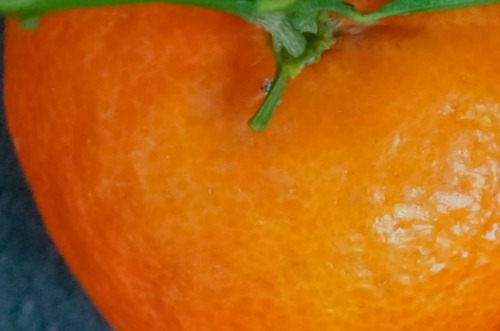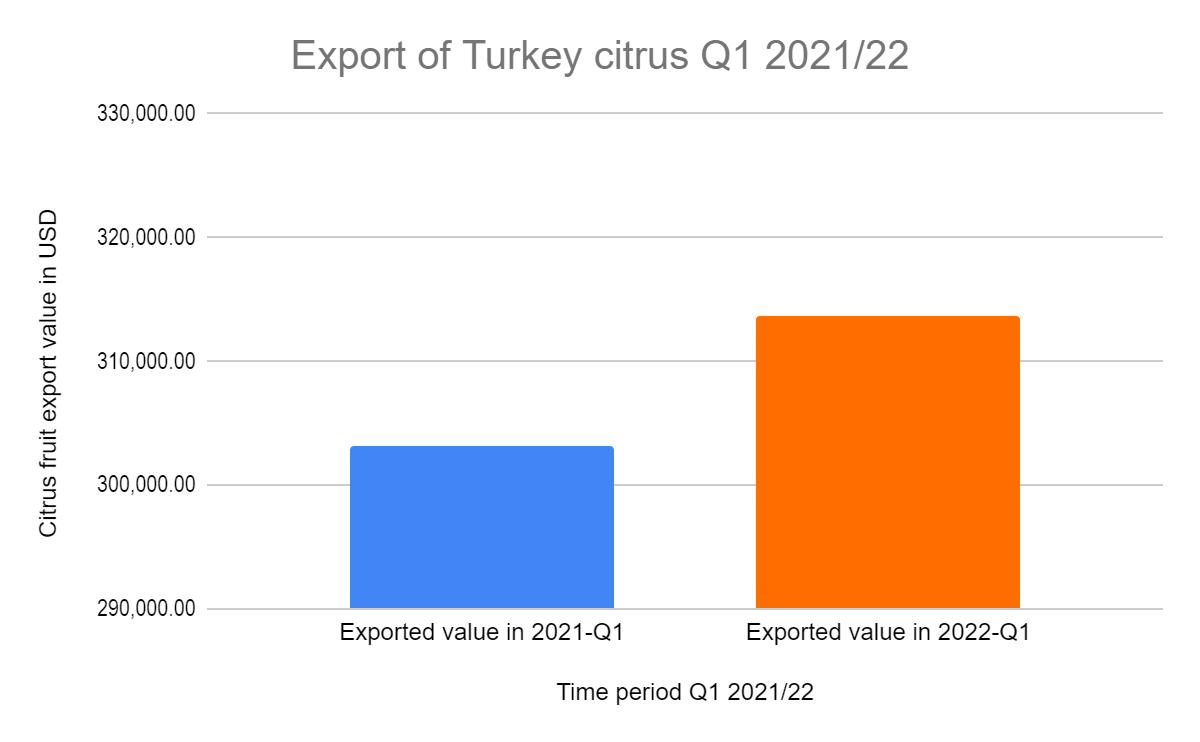Turkey’s Citrus Exports for Q1 of 2022 Have Increased despite the Volatile Political Situation


Due to its geostrategic position, favorable climate, and young demographic population, Turkey has made significant progress in agricultural production. The proximity to Russia and Ukraine explains the lion's share of citrus exports, with over 60% going to Russia (50%) and Ukraine (10%). The Russia-Ukraine conflict has significantly disrupted the export and distribution of goods, with borders closing, payment difficulties, and transport inaccessibility. Despite the conflict, according to Mediterranean Exporters' Associations (AKİB), in Q1 2022, the total value of citrus exports for Q1 2022 was USD 313.68M, an increase of 3.37% compared to Q1 2021, which was USD 303.09M. The total fruit and vegetable exports in Q1 2022 were USD 762.66M.
Increased exports were due to the rise in citrus production, especially mandarins. Turkey is the third-largest mandarin supplier, with a 20.03% global share. For CY 2021/22, mandarin production reached 1.75 million mt, a YoY increase of 9%, due to favorable weather. The second citrus fruit in export value is Lemon with exported quantities of 0.62 million mt for MY2021, a YoY increase of 24.14%, and Oranges on third with a YoY decrease of 9.77% at 256 thousand mt.
Besides favorable weather conditions, expansion of planted areas under mandarins and the introduction of more fertile varieties affected total production, with constant investments of the state and the producers themselves who worked on improving production technology, bringing in expert consultants.
On the other hand, citrus production in south Europe, the main competitor in citrus exports, is forecasted to decline by 7.5% YoY, to 2.9M mt, and will also be almost 5.5% lower than the ten-year production average of 3.1M mt (Spain, Portugal, Italy, and Greece) due to decreased farming area for mandarins. Another positive outlook for Turkish exports is the devaluation of the Turkish lira, which in Q1 of 2022 was down 10%, and is nearly at half its value compared to a year ago, having shed 44% in 2021. The devaluation of the lira encourages export, but the opposing sides are the increase in the price of import inputs, the withdrawal of investors, and the reduction of the economic power of domestic consumption.
The Turkish government has already made efforts to soften the lira's devaluation to restore the economy. Still, it will take time to ease inflationary pressures, and with the announced government aid to growers, it is expected that production for CY 2022 will maintain a higher level than the year before. With the current market situation in the citrus trade, Turkey will remain a strong player and force to reckon with in the following years.




